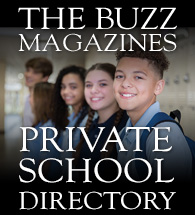Sunday Mornings with Rania: Social Media Safety

We are all on social media - it is so deeply ingrained with how we live, think, spend our time, connect, message, market and socialize. We use it to keep up with family and friends, to watch what others are up to, to find romance or to market our businesses. I respect all legal uses of all legal platforms but caution that when used the wrong way, social media can be extremely dangerous.
I was reminded of this when I recently received a friend request from someone unknown to me. Because I use Facebook primarily for work, I accepted. NOTE: When you are marketing a brand, you cast a wide net to reach as many as possible; I often accept friendships from strangers. I’ll address this more later.
Within minutes, I started receiving messages (all with horrific spelling, I might add) beginning on a Friday evening at 10:49 p.m., again at 11:06 p.m., again at 7:50 a.m. and again at 8:27 a.m. after which point I blocked the account. The comments were about my appearance, the account users’ interest and in the end, I was “honey.”
I was furious.
Ironically, I shared the incident on Facebook as a warning to others to be aware, and the barrage of messages that came my way prompted this week’s post. Many women shared they’re receiving unsolicited messages like this all the time, which is terrible. They were frustrated. Others claimed it was a “bot” and encouraged me not to give it a moment’s concern (yes, the message was more than likely a bot but that raises great concern). And then there were the men who were angry that I called the account user out and “shamed” him. They felt I was only sharing the post to parade the compliments I was receiving… (REALLY?). It was incredible and the conversation that followed was eye-opening. I had to share the takeaways with you.
Takeaway #1 – Compliments and the Younger Teen
In my case, not all compliments are complimentary. These unwelcomed messages bothered and offended me. I was even embarrassed to share them, but I did for one reason: if I, a married mother of three, am receiving “solicitation” messages, what are our younger girls receiving and how are they responding? In my case, the sender was already thinking about me “24/7”, he “appreciated” me and was “there for me.” I knew to block immediately. But if I were a lonely teen used to living and connecting in the online world, these might be welcomed words, lifesaving attention… guess what, even the most well-liked girl could reply thinking it was adventurous or even funny to see where the messages would lead. Whether the account user was real or a bot, in ALL cases, this is dangerous, and we must be talking about it.
Takeaway #2 – Think: Why do you use social media?
To connect with friends/family: It’s wonderful for sharing your lives with those near and far! Please remember to connect only with “friends” known to you; turn off location services on all photos posted; make sure your posts are not public; check the “interests” of those who friend request you and are unknown to you – I once had someone try to connect and when I looked at his “interests and hobbies” on his page, he wrote “going to sex shops.” Do you really want to share photos of your teen with a person who has this as a hobby? Never share to the location of your home, children’s schools or activities. Be very cautious knowing that whatever you share could ultimately be reshared by others.
To find a potential partner: This is a tough one. There are many dating platforms perfect for finding others interested in connecting. To be very honest, for those of us using social media to share our lives or promote our businesses, it’s extremely annoying to be “hit on” when you’re not looking for it. Let me put it this way – if you are looking for love, go to singles night at the bar. Don’t tap on my shoulder while I’m at Target with my children. Not interested. Not appropriate. And that’s not just me, that’s all women, single, married, or otherwise. Unwanted advancements, especially if they are persistent and repetitive, become harassment. We don’t want it. According to a PEW study from October 2014, women are more likely to be harassed on social media than men (73 percent to 59 percent). That number has increased since this study.
To market your brand or company: Given the dynamic nature of digital marketing in today’s society, social media sites like Facebook, Instagram and Snapchat have become a significant and critical piece of our lives. I use Facebook and LinkedIn 99 percent for work because it’s a cost-effective way to connect Crime Stoppers of Houston with people from all over the world. Reflect on this for a second:
- 1.45 billion people on average log onto Facebook daily and are considered daily active users (Facebook DAU) for March 2018, which represents a 13 percent increase year over year (Source: Facebook as of 04/25/18).
- Five new profiles are created every second. (Source: ALLFacebook 2012)
- Every 60 seconds on Facebook: 510,000 comments are posted, 293,000 statuses are updated, and 136,000 photos are uploaded. (Source: The Social Skinny)
Social media offers businesses a powerful marketing tool. Just remember, if you are opening the gates to the mass public, do your best not to share any personal photos of your family, your home, or truly personal life (wishing a spouse happy birthday, for example, would be okay but posting photos of you and your spouse in front of your new home would be a NO-NO!). After all, you do not know your connections and should not open your personal lives to them.
As a teen: Realizing that for youth, accepting friend requests or followers is similar to a stock building its portfolio by acquiring assets. Teens, as much as we talk to them, don’t have the full maturity to understand the depths of the risks we are trying to protect them from. Remind them that users unknown to them, especially considering that the average teen on Snapchat or Instagram, is 100 percent sharing their location (where they work, go to school, shop, hangout), it’s CRITICAL that they exercise extreme caution when connecting online.
- 82 percent of 5-7 year olds are on social media
- 96 percent of 8-11 year olds are on social media
- 99 percent of 12-15 year olds are on social media
Balance that with the fact that the number of sexual predators and online sexual offenses has more than doubled in the last three years with more than 82 percent of online sex crimes originating from social networking sites that predators use to gain insight into the victim’s habits and likes. According to a PEW report from October 2014, online harassment is especially pronounced at the intersection of gender and youth. Parents, please talk to your kids about these risks! If you’ve allowed them the use of social media then you must have this conversation.
Takeaway #3 – Bots and fake accounts
What is a bot? Bots were originally designed by companies as AI software that can engage in actual conversations to make consumers feel heard; they are almost an AI customer service arm or sales force. Forbes Magazine credited Facebook in the article “How Facebook Messenger Bots are Revolutionizing Business.” In fact, there are an estimated 83 million+ fake Facebook profiles.
Like all things, the technology has been replicated and used to find potential victims - young and old - who might engage in conversation and ultimately share photos, banking information, location or more. Let’s not forget that young girls can be lured into human trafficking by clicking and sharing their way through social media. This is a fact. Ultimately, there is a purpose behind the solicitation, the unwanted message, and it is never good. So how do you detect a bot? Well, beware of all unsolicited requests from someone you don’t know, even if you have “mutual friends in common.” Spelling mistakes are a red flag as well as odd jobs or messages from people in other parts of the world. Never engage, block immediately and report the account. PLEASE talk about it and share the experience with others. In my case, the account user that reached out to me was reaching out to many of the women I was connected to.
Social media is a part of our lives and it’s a wonderful tool, if used properly. But it’s a powerful tool with criminals monopolizing its weakness for their gain. My greatest hope is that as we become this global community, we don’t forget to keep ourselves, our children and each other safe, at all times. Let’s commit to doing that together.
For more information on Crime Stoppers of Houston, go to crime-stoppers.org and follow Crime Stoppers on Facebook. Have topics in mind that you’d like Rania to write about? Email her directly at [email protected]. Connect with Rania on Instagram and Twitter. Read past Sundays with Rania posts here.
Editor's Note: Views expressed here are those of the author and do not necessarily represent the views of The Buzz Magazines.
Want more buzz like this? Sign up for our Morning Buzz emails.
To leave a comment, please log in or create an account with The Buzz Magazines, Disqus, Facebook, or Twitter. Or you may post as a guest.



